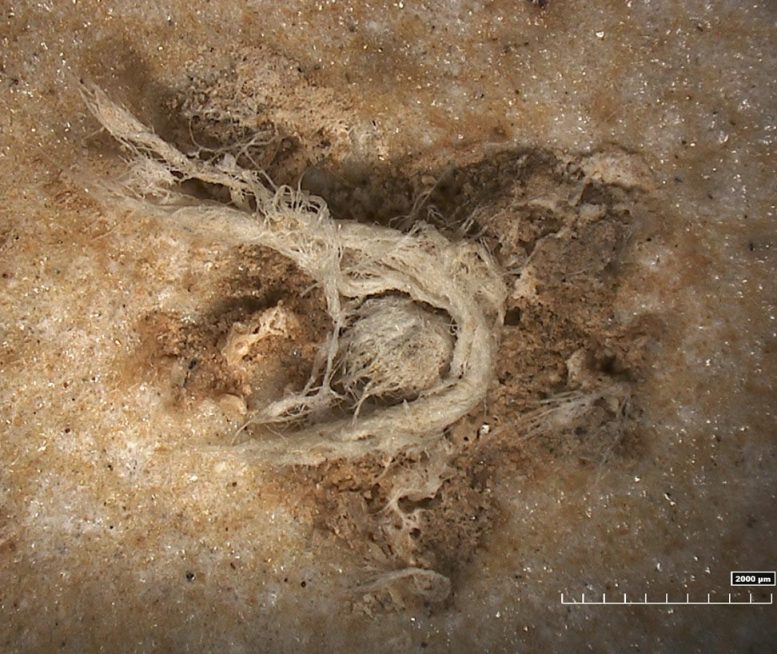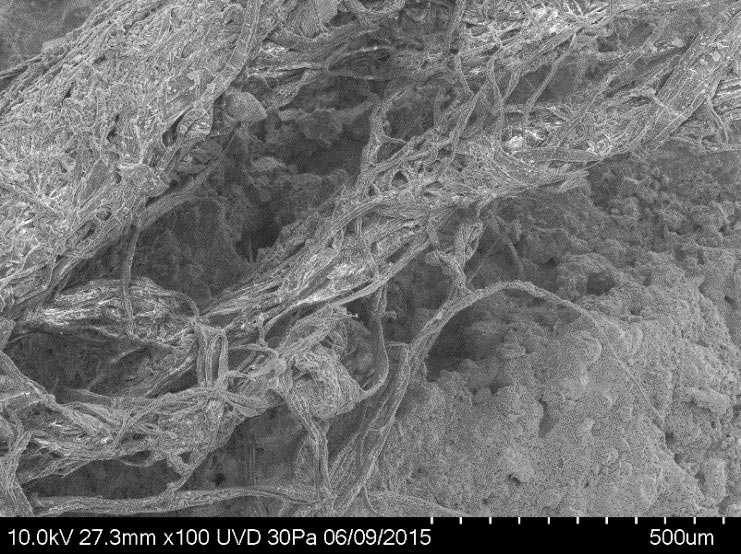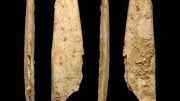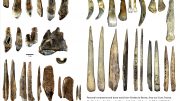
Photograph of the cord fragment taken by digital microscopy (the fragment is approximately 6.2 mm long and 0.5 mm wide). Credit: © C2RMF
Contrary to popular belief, Neanderthals were no less technologically advanced than Homo sapiens.
An international team, including researchers from the CNRS, have discovered the first evidence of cord making, dating back more than 40,000 years,[1] on a flint fragment from the prehistoric site of Abri du Maras in the south of France.[2] Microscopic analysis showed that these remains had been intertwined, proof of their modification by humans.
Photographs revealed three bundles of twisted fibers, plied together to create one cord. In addition, spectroscopic analysis revealed that these strands were made of cellulose, probably from coniferous trees.

Detail of the cord fragment showing twisted fibers, observed by scanning electron microscopy. Credit: © MNHN
This discovery highlights unexpected cognitive abilities on the part of Neanderthals, who not only had a good understanding of the mathematics involved in winding the fibers, but also a thorough knowledge of tree growth.
These results, published today (April 9, 2020) in Scientific Reports, represent the oldest known proof of textile and cord technology to date.
Read 50,000 Year-Old String Reveals Neanderthals Were Technologically Advanced for more on this discovery.
Reference: “Direct evidence of Neanderthal fibre technology and its cognitive and behavioral implications” by B. L. Hardy, M.-H. Moncel, C. Kerfant, M. Lebon, L. Bellot-Gurlet and N. Mélard, 9 April 2020, Scientific Reports.
DOI: 10.1038/s41598-020-61839-w
The following laboratories contributed to this work: Histoire naturelle de l’Homme préhistorique (CNRS/Muséum national d’Histoire naturelle/Université de Perpignan Via Domitia), De la molécule aux nano-objets : réactivité, interactions et spectroscopies (CNRS/Sorbonne Université), along with the Centre de recherche et de restauration des musées de France (ministère de la Culture).
The excavations at the Abri du Maras have in particular benefited from funding from the French Ministry of Culture and the Auvergne-Rhône-Alpes Regional Archaeology Service.
Notes:









Be the first to comment on "Contrary to Popular Belief, Neanderthals Were as Technologically Advanced as Homo Sapiens"